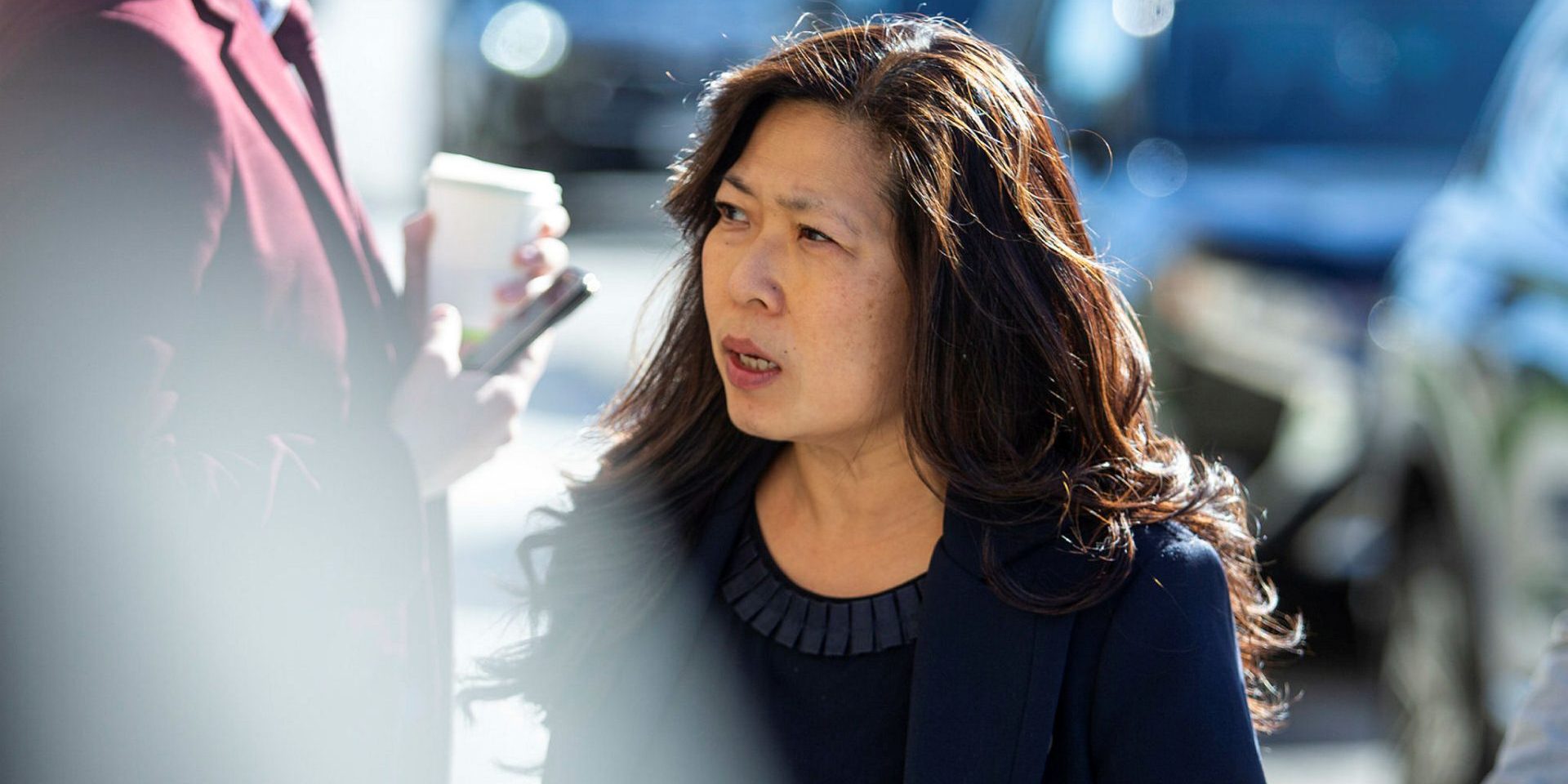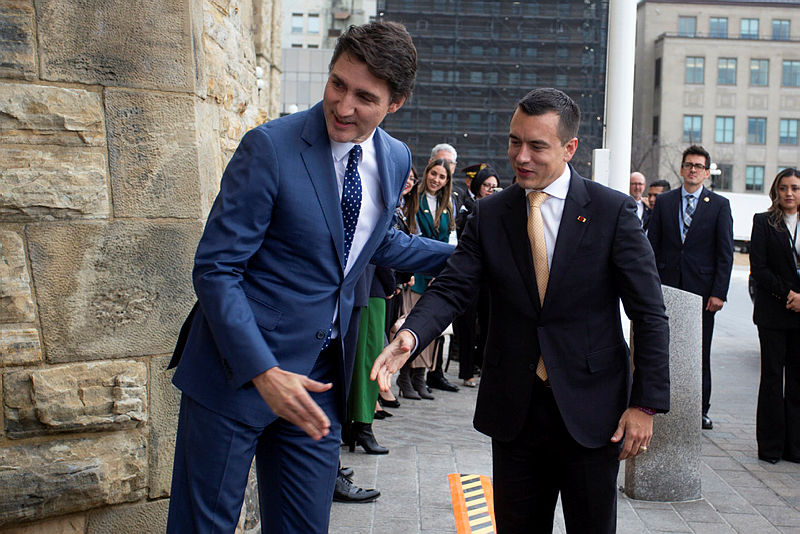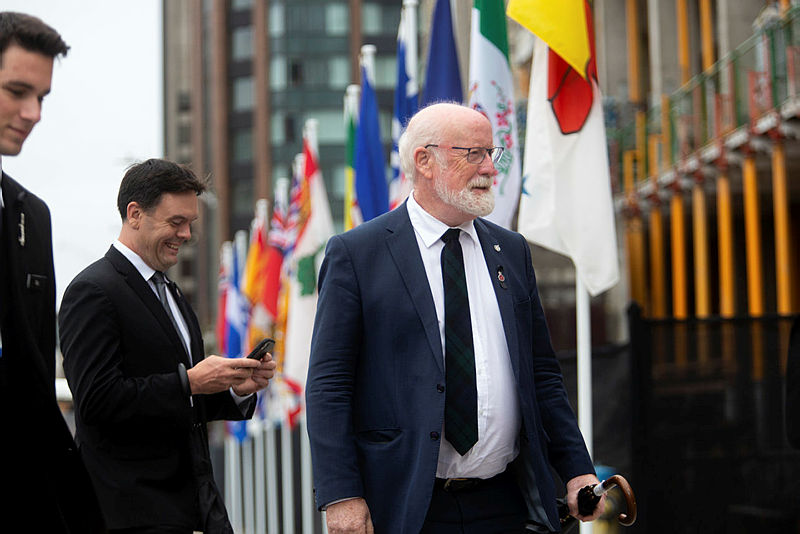Canada going ahead with Ecuador trade talks despite Mexican Embassy raid rebuke

After castigating Ecuador for flouting its commitment to an international pact, Canada still plans to move forward with trade negotiations with Quito, maintaining that talks are a forum to spotlight the need to adhere to a country’s legal pledges.
Earlier this month, Ecuadorian authorities raided the Mexican Embassy in Quito to arrest Jorge Glas, who served as vice president of Ecuador from 2013 to 2017. Glas was seeking political asylum in the embassy.
In an April 11 statement, Global Affairs Canada (GAC) called the “unauthorized entry” into the Mexican Embassy “a clear violation” of the Vienna Convention on Diplomatic Relations.
Article 22 of the convention lays out that the “premises of the mission shall be inviolable,” and that officials from a host country cannot enter an embassy without the approval of the head of mission.
“Canada condemns all violations of the Vienna Convention and of international law, and reaffirms its strong disappointment that Ecuador has done so in this case,” GAC’s statement reads. Mexico and Nicaragua cut off diplomatic relations with Ecuador following the raid.
Asked whether Canada would still pursue trade negotiations with Ecuador after the breach, a GAC spokesperson confirmed that the first round of trade negotiations is set to start on April 29.
“FTA [free trade agreement] negotiations are an occasion to strengthen the rule of law and underscore the importance of honouring legal commitments,” GAC spokesperson Pierre Cuguen said in a statement to The Hill Times.

“We maintain that an FTA with Ecuador, supporting good governance and economic opportunity, will benefit Canadian companies, in line with the outcome of Canada’s public consultations process on the FTA,” he added.
Ecuadorian Ambassador to Canada Carlos Játiva also confirmed to The Hill Times that the first round of negotiations will begin on April 29.
Liberal MP Judy Sgro (Humber River-Black Creek, Ont.), chair of the House Committee for International Trade, said trade talks can be an opportunity for Canada to reinforce its expectations that Ecuador meet its international commitments.
“Negotiations are an opportunity to put some added emphasis on the fact that we don’t take these things lightly, and we’re not going to have trade agreements unless we’re having them in an understanding that human rights are important to Canada, and we’re going to insist that agreements be followed and be respected,” she said.
Sgro said Ecuador understands the importance of a potential trade deal, so she expects that Canada can get “firm commitments” that it will follow what is agreed in an eventual pact.
She added that it would’ve been much more preferable if Ecuador’s raid on Mexico’s Embassy had not happened.
“That just raises another kind of roadblock that could be potentially problematic,” she said.
Amnesty International Canada has called for the trade talks to be put off until Ecuador makes firm commitments to human rights.
Kathy Price, Amnesty International Canada’s Latin Americas campaigns co-ordinator, said Ecuadorian President Daniel Noboa has shown his “true colours” with the raid on Mexico’s Embassy.
“This incident shows what the Ecuadorian government is willing to do,” she said. “And they are thumbing their nose to long-standing international obligations.”
Price said the raid calls into question Ecuador’s commitment to human rights and the rules-based international order, remarking that there are added concerns that are ongoing—far from the eyes of the Mexican Embassy’s security cameras—in isolated parts of the country where there have increasingly been allegations of Ecuador failing to safeguard Indigenous rights.
“In this context, and considering Ecuador’s very obvious conduct during the Mexico Embassy raid, the crucial question we have to ask is whether it is appropriate to move full steam ahead with Canada-Ecuador trade negotiations,” she said.
Before the raid, Price had told the House Committee for International Trade in February that negotiations shouldn’t proceed without meaningful consultations with affected Indigenous peoples in Ecuador.
“The question that we are delivering, and we have been delivering, is: where are the guarantees that human rights will be more than just an empty statement of shared values that are too easily sacrificed when whatever the agenda is requires?” Price told The Hill Times.

Political opposition to trade negotiations with Ecuador had been building—as the NDP and Bloc Québécois have raised concerns over the inclusion of an investment protection dispute settlement (ISDS) regime in a potential deal—but a recent referendum vote has alleviated some of the dissent, as around 60 per cent of Ecuadorians recently voted against allowing international arbitrators settling trade disputes.
ISDS systems allow private corporations to sue governments through an independent arbitrator when they feel changes in domestic laws have injured their investments.
Both Canada and Ecuador had indicated they would support ISDS provisions being included in a final trade pact. But Canada’s negotiating objectives for talks with Ecuador, which were tabled in the House of Commons on March 19, indicated that investment and services “may be set aside” in negotiations “in light of ongoing consideration in Ecuador of the legal compatibility between investment agreements and its domestic legal framework.”
NDP MP Richard Cannings (South Okanagan-West Kootenay, B.C.), his party’s international trade critic, said the referendum vote against allowing international arbitration “goes a long way” to allay his concerns about a potential agreement.
“My real concern was around investor-state dispute mechanisms that would really only be there to protect Canadian companies’ interests,” he said.
Cannings said he would be “very surprised” if Canada continues to insist on moving ahead with an ISDS clause and investment chapter.
He called Ecuador’s raid on the Mexican Embassy a “serious issue” that needs to be addressed by the international community.
Conservative MPs have also spotlighted concerns with a carbon tax being included in a negotiated deal. It was that concern that led the Tories to vote against Canada’s modernized trade deal with Ukraine, despite there being no provisions within the pact that would have enacted a carbon tax, which both countries already have.
nmoss@hilltimes.com
The Hill Times






 LICENSING
LICENSING PODCAST
PODCAST ALERTS
ALERTS













